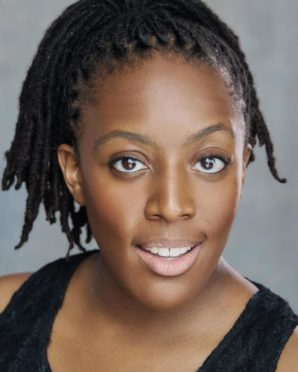When playwright and poet Hannah Lavery was approached by Pitlochry Festival Theatre’s artistic director Elizabeth Newman to create a new version of Robert Louis Stevenson’s famous novella The Strange Case of Dr Jekyll and Mr Hyde in spring of this year, she had to take some time to think about how it could be done in a new and interesting way.
“I reread the novella a few times and tried to find a way in,” says Lavery.
“What really struck me was the idea of ‘the good man’, and how within the novel there’s so much about men presenting themselves to other men.
“Yet on the edges of the novel there are these women. There’s the cook and the servant and the woman who witnesses the murder, the woman who runs the boarding house.
Women are often the canary in the mine.”
Playwright Hannah Lavery
“I started to think about how women always know.
“Women are often the canary in the mine, aren’t they? When it’s revealed that the man everyone thought is so good (is not good), it’s always women who have been carrying that knowledge.
“I thought, well these women know Dr Jekyll, they know what he’s capable of, they know his shadow side. What would they say if it was them telling the story, and I explored it from their point of view?”
‘As women we wear many faces’
The recent Me Too and Time’s Up movements were very much to the fore in her thinking, and it seems an area ripe for exploration within this story – the idea of the dark inner self that some men might hide away, often when outward perception of them relies on a gloss of respect.
What makes this version even more intriguing is that actor Alicia Mackenzie – who Lavery describes as “brilliant” – will be performing it in Pitlochry Festival Theatre’s woodland amphitheatre as a one-woman show, filtering all the characters through a female point of view.
“The idea was, I have a woman that can be all these different characters, so a woman can do all these transformations, which I found really exciting,” says Lavery.
“As women we wear many faces, in a sense, so that was my way in. Then when I was reading about Jekyll and Hyde, Stevenson was thinking of ideas around, what’s a good life, what’s hypocrisy?
“It felt like it was really speaking to our time, how behind every facade there are these hidden secrets.
“We live in a time where we’re in charge of and obsessed with the image we put out of ourselves on social media. This story speaks to that hypocrisy, I think that’s why the novel resonates, because we’re living in a way where we have to construct ourselves to fit into society.
“At the moment that feels particular to the way we have to communicate with each other through (online) avatars, we’re having to create these constructed persons.”
Classic horror with a modern outlook
The way Lavery talks of the Jekyll/Hyde dynamic gives a thoughtful new perspective to the character(s) and his (or their) meaning.
“Hyde is Jekyll without conscience,” she explains.
“It’s about being able to buy off, to drug, to quieten down your conscience – and then what happens when conscience comes back and demands a reckoning?
“That was how I read the novel, and I wanted to explore it as if the conscience was there in those women who were part of that reckoning.”
Despite the intriguing change in perspective, however, the heart of what this classic horror is remains intact.
“It’s very much the same story with the same plot, it’s just that where I’ve put emphasis in will be different,” says Lavery.
“But I’ve stayed very faithful to the plot and to the time it’s set in. I’ve tried to keep a Gothic feeling, hopefully it’s still unnerving, it’s got some humour to it, as well.
“There’s definitely a sense of the otherworldly to the story, which I’ve hopefully brought to life.
“I can’t wait to see it sitting there amongst the woods, I think it will make it feel really special.”
Jekyll & Hyde is at Pitlochry Festival Theatre on Thursday 26th and Saturday 28th August, and Wednesdays 1st and 8th September. See the Pitlochry Festival Theatre website for tickets and more information.
Related:
REVIEW: Lament for Sheku Bayoh holds up a mirror to Scotland’s relationship with racism



